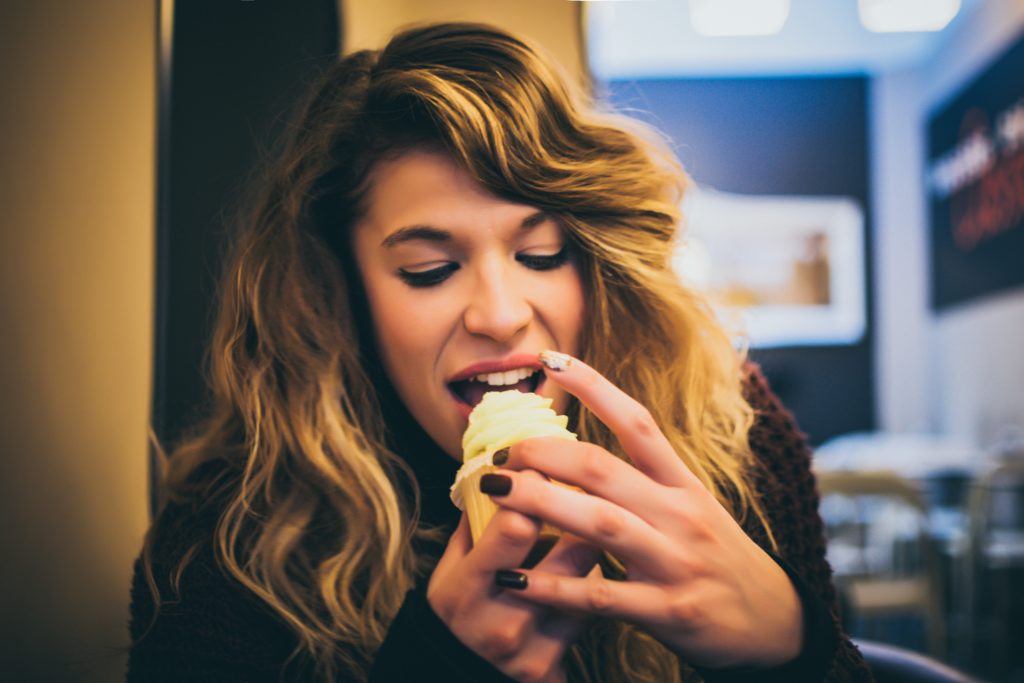Eating Disorders: Physical vs. Emotional Eating
I’d like to introduce you to Janelle Hunt, who is a Registered Dietitian and an EDIT™ Certified III – Eating Disorder Treatment Clinician. Janelle worked with me at my previous office location in Denver, Colorado. She is a knowledgeable and compassionate clinician, who specializes in nutritional counseling for people in recovery from eating disorders. She guides her clients to learn the real facts about nutrition – in this article, you’ll learn the facts about fats. If you’re “hungry for more,” please contact Janelle about becoming a client (see bottom of article).
– Dr. Dorie
As a Registered Dietitian, part of my role is to provide education about nutrition. I recently taught a class on emotional vs. physical eating. I started the class by asking who felt they were an emotional eater, at which point about half of the class identified they emotionally ate. How about you? Let’s identify what exactly physical vs. emotional eating means, and discover which category you fall into majority of the time.
After I spent some time explaining this chart, the whole class was able to identify that they all do indeed emotionally eat. The reality is, we all emotionally eat at times – but, we each have differences in the frequency that it happens and the quantity of food consumed. We all link food with certain memories and we’re either taught or have learned to use food for enjoyment, to comfort ourselves, or try to satisfy a particular emotion we’re feeling. There is actually nothing wrong with some emotional eating; I bet you didn’t think you’d hear that from a dietitian!
Emotional eating does become a problem, though, when it begins to affect someone’s weight negatively – with significant fluctuations, either up or down. Emotional eating is also a problem if it starts to control someone’s life to the point where food becomes their primary coping tool, leading to a complete loss of the ability to eat according to true physical hunger/fullness cues.
So, maybe it’s time to stop beating ourselves up if we have a little something because it just sounds comforting or good. What would happen if you actually acknowledged that some emotional eating is normal, and give yourself permission to have food at times for this purpose? The key is to make sure you have a balance of other coping tools you also incorporate as well so you have balance.
*****
Looking for guidance with NUTRITION? Contact Janelle Hunt, MS, RD – the author of this blog article. She is an EDIT™ Certified III – Eating Disorder Treatment Clinician, and has a specialty in nutritional counseling for eating disorders. – EMAIL JANELLE
Interested in a FREE consultation with Dr. Dorie? Dr. Dorie is passionate about her method of Eating Disorder Intuitive Therapy (EDIT)™ to help people overcome eating disorders and addictions. She provides customized counseling for eating disorders and alcohol / drug addiction at her Positive Pathways treatment center in Evergreen, Colorado – and EDIT™ eating disorder training and certification for coaches and clinicians worldwide. CALL 303-494-1975 – EMAIL DR. DORIE

